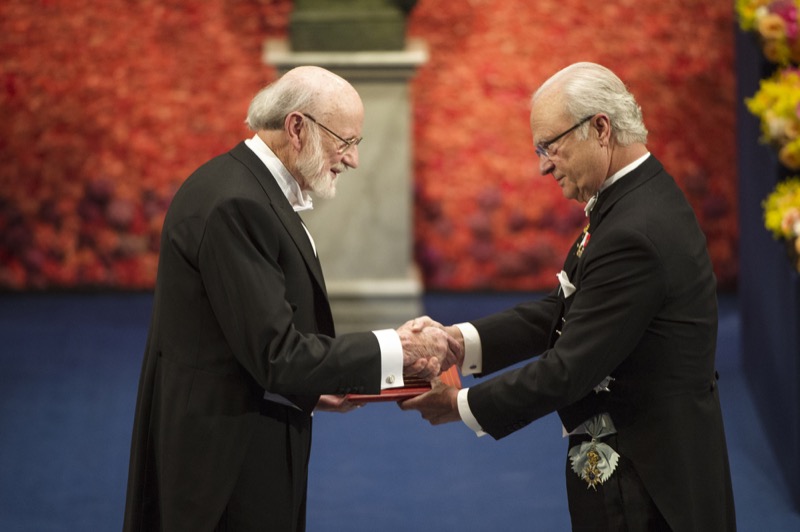Provost Attends Nobel Prize Award Ceremony
Posted on: 17 December 2015
Trinity College Dublin graduate, Professor William Campbell received the 2015 Nobel Prize in Medicine at the Nobel Prize Award Ceremony in Stockholm on December 10th. He received the Nobel Medal from King Carl XVI Gustaf of Sweden with invited dignitaries and guests in attendance, including Trinity’s Provost, Dr Patrick Prendergast.
Professor Campbell and Professor Satoshi Omura were jointly awarded the prize for their discoveries concerning a drug against infections caused by roundworm parasites. The drug, Avermectin, the derivatives of which have radically lowered the incidence of river blindness and lymphatic filariasis. The drug has also shown efficacy against a growing range of other parasitic diseases.

Professor Campbell is the third Trinity graduate to have been awarded a Nobel Prize, joining physicist E.T.S. Walton who won the Nobel Prize for splitting the atom, and Samuel Beckett for his contribution to literature.
“Professor Campbell was centrally involved in developing the cure against river blindness,” stated the Provost, Dr Patrick Prendergast. “In 1987 he spearheaded the decision by Merck to distribute that cure free to millions of people in what became one of the first and foremost examples of a public/private partnership in international health. Annually 25 million people are treated under this scheme preventing new cases of river blindness.”
Professor William Campbell, originally from Ramelton in Donegal, graduated with first class honours in zoology from Trinity in 1952. He went on to receive a PhD from the University of Wisconsin in 1957, following which he worked with the Merck Institute for Therapeutic Research until 1990. He is currently a research fellow Emeritus at Drew University, Madison, New Jersey.
Professor Campbell was conferred with a Doctor in Science (Sc.D) by Trinity in June 2012 in recognition for his scientific research and contribution to society. He also gave a lecture to staff and students in zoology on the ‘The Story of Ivermectin’. (The bioactive agent Avermectin, was chemically modified to a more effective compound called Ivermectin.)
Professor Campbell was also involved in the development of several drugs used in human and veterinary medicine.
